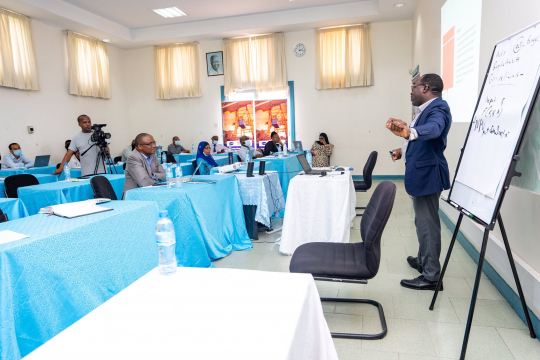Civil servants from government ministries, departments, and agencies met in Dar es Salaam, Tanzania to learn how they can take advantage of research in environmental economics. EfD Tanzania’s Director Prof. Razack Lokina spoke on the topic Can natural resource accounting influence policy decisions?
The participants learned about how to use resources more sustainably by including environmental and health costs in the market prices of goods and services (full-cost pricing), subsidizing environmentally beneficial goods and services, taxing pollution and waste instead of wages and profits, and reducing poverty.
Prof. Lokina highlighted the costs for solving problems with waste, pollution, energy flow, and recycling. He also addressed the need to reduce the waste of materials and energy resources.
Among lessons learned from this training were how to:
(1) reuse and recycle most non-renewable matter,
(2) using renewable resources, and avoid quicker diminish that can be replaced,
(3) reduce waste of energy,
(4) reduce unnecessary and environmentally harmful consumption,
(5) emphasize pollution prevention and waste reduction, and
(6) control population growth to reduce the use of natural resources and energy consumers.
The policymakers showed a great interest in these issues and Prof. Lokina encouraged them to influence the public and the parliament for a better understanding of environmental issues.
This training took place on the premises of Research on Poverty Alleviation (REPOA), an independent research institution that creates and utilizes knowledge to facilitate socio-economic development. REPOA provides training, facilitates knowledge-sharing, and promotes the use of accurate information in policy development.
The training was organized on 2-4 of February 2022 by the National Environmental Management Council.
